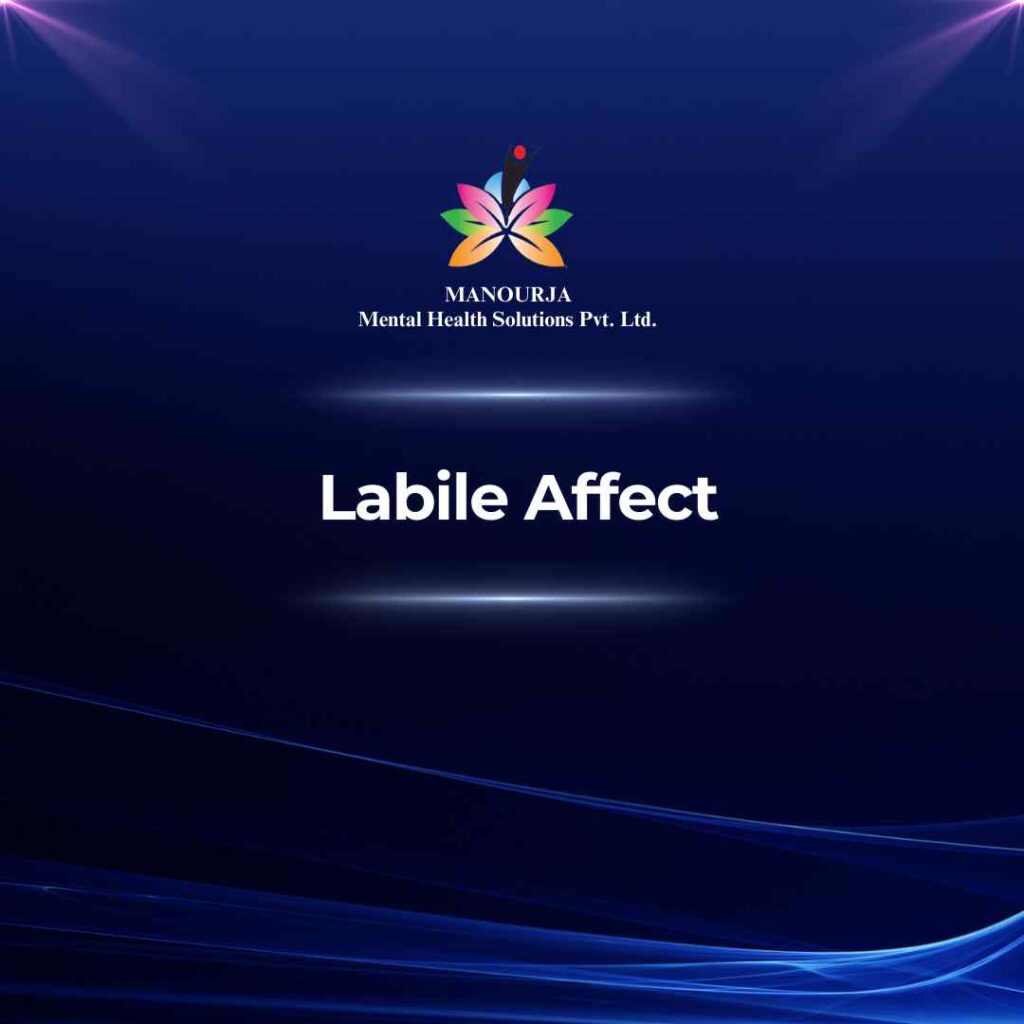Labile Affect

“Labile affect” refers to rapid and exaggerated changes in mood or emotional expression that are inappropriate to the situation. People with labile affect may experience sudden shifts from one emotional state to another, such as going from laughing to crying without a clear reason. These emotional responses are often intense and can be confusing or unsettling to others.
Labile Affect as a Sign and Symptom of Mental Illness
Labile affect is a symptom that can indicate underlying mental health or neurological conditions. It signifies instability in emotional regulation and can interfere with daily functioning, relationships, and overall well-being. The rapid mood swings can be distressing for the individual and those around them.
Mental Illnesses with Labile Affect as a Symptom
Several mental health and neurological disorders can feature labile affect as a symptom:
- Bipolar Disorder: Characterized by extreme mood swings, individuals with bipolar disorder can experience labile affect during manic or depressive episodes, with sudden and intense shifts in emotions.
- Borderline Personality Disorder (BPD): People with BPD often exhibit labile affect, experiencing rapid and intense changes in mood and emotions, often in response to interpersonal stressors.
- Schizoaffective Disorder: This condition involves symptoms of both schizophrenia and mood disorders (such as bipolar disorder), and can include labile affect, with sudden changes in emotional expression.
- Post-Traumatic Stress Disorder (PTSD): Individuals with PTSD may experience labile affect as part of their emotional dysregulation, especially when triggered by reminders of the traumatic event.
- Major Depressive Disorder (MDD) with Mood Lability: Some people with major depression may experience mood lability, where their emotions change rapidly and unpredictably.
- Neurological Disorders: Conditions such as multiple sclerosis, traumatic brain injury (TBI), and stroke can affect brain regions responsible for emotional regulation, leading to labile affect.
- Dementia: Various forms of dementia, including Alzheimer’s disease, can cause labile affect as the brain’s ability to regulate emotions deteriorates.
- Substance Use Disorders: Intoxication or withdrawal from substances like alcohol or drugs can lead to labile affect, with rapid and unpredictable mood swings.
Managing and Treating Labile Affect
Treatment for labile affect focuses on addressing the underlying condition and improving emotional regulation. Approaches include:
- Therapy: Cognitive-behavioral therapy (CBT) and dialectical behavior therapy (DBT) can help individuals develop skills to manage and regulate their emotions.
- Medication: Antidepressants, mood stabilizers, and antipsychotic medications may be prescribed to help stabilize mood and reduce emotional volatility.
- Lifestyle Changes: Regular exercise, healthy sleep patterns, and stress management techniques can contribute to more stable moods.
- Psychoeducation: Educating individuals and their families about labile affect and its triggers can help in understanding and managing this symptom more effectively.
- Neurological Treatment: For those with neurological conditions, specific treatments and rehabilitation may help improve emotional regulation.
Recognizing labile affect as a symptom of mental or neurological illness is crucial for providing appropriate treatment and support, ultimately helping individuals achieve greater emotional stability and improve their quality of life.
At MANOURJA, we believe in the transformative power of counseling. Our experienced therapists offer a safe and supportive space where you can explore your thoughts, emotions, and challenges. Through personalized counselling sessions, we’ll work together to develop coping strategies, build resilience, and achieve lasting positive change. Discover the path to a healthier, happier you with MANOURJA counselling services.
MANOURJA Rehabilitation Services
At MANOURJA, we’re dedicated to helping you in rebuild your life, after difficult times. Our rehabilitation services focus on understanding what you need to move forward, whether you’re recovering from addiction, trauma, or any psychological – social challenges. We create personalized plans, that are all about helping you, regain your strength and find hope again. With a caring team by your side, you’ll have the support to make real progress and take steps toward a brighter, healthier future.
